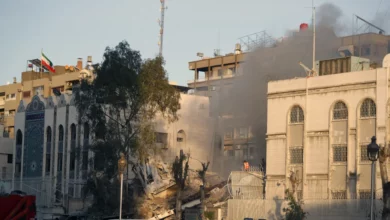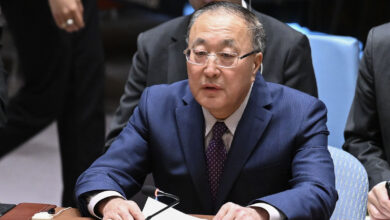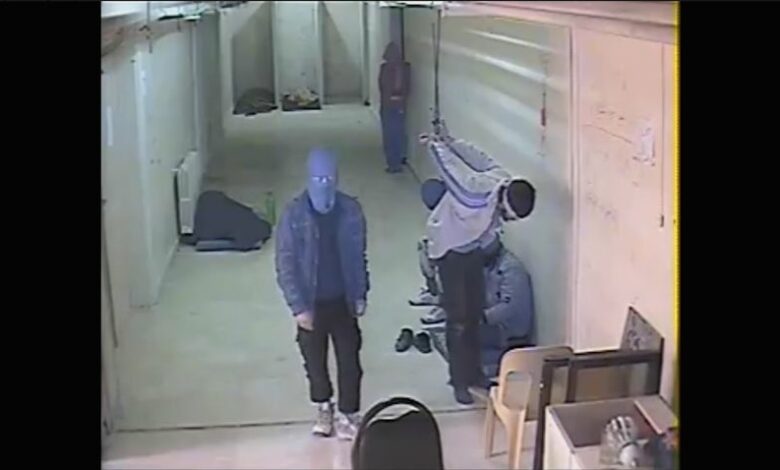
The hallway, filmed from an unmoving closed-circuit camera, appears unremarkable. It’s the point in time, and the people in the former children’s hospital, that make the hours and hours of video from this and other cameras on site extraordinary.
ISIS fighters roamed the hallways of this building complex in the Syrian city of Aleppo, which they had claimed as a headquarters. They moved blindfolded prisoners. They struck them with sticks. They walked past a man being tortured – straining to stand, arms tied aloft behind his back.
They felt at ease. They removed their masks.
For months in 2013, the security cameras recorded the events, seemingly unbeknownst to the building’s occupants.
ISIS put considerable effort into its propaganda videos, and many show no small measure of criminality and violence. But they were carefully crafted. The footage from the children’s hospital in Aleppo’s Qadi Askar neighborhood is what ISIS didn’t want you to see.
To some, the terror group may seem like a distant memory. But to police and prosecution services, especially in Europe, the past is very much present.
“These videos are incredibly important evidence at trial,” said Chris Engels, director of investigations and operations for the Commission for International Justice and Accountability (CIJA), whose investigators work to gather evidence which could be used to prosecute members of groups such as ISIS for past actions.
“We’re able to corroborate the stories of surviving victims.”
CIJA shared the security camera videos it obtained exclusively with CNN.
Hundreds of Syrians were held in this makeshift prison. Many never made it out alive.
When rebel forces liberated the building from ISIS in January 2014, they found corpses strewn across the floors – executed, with hands tied behind their back.
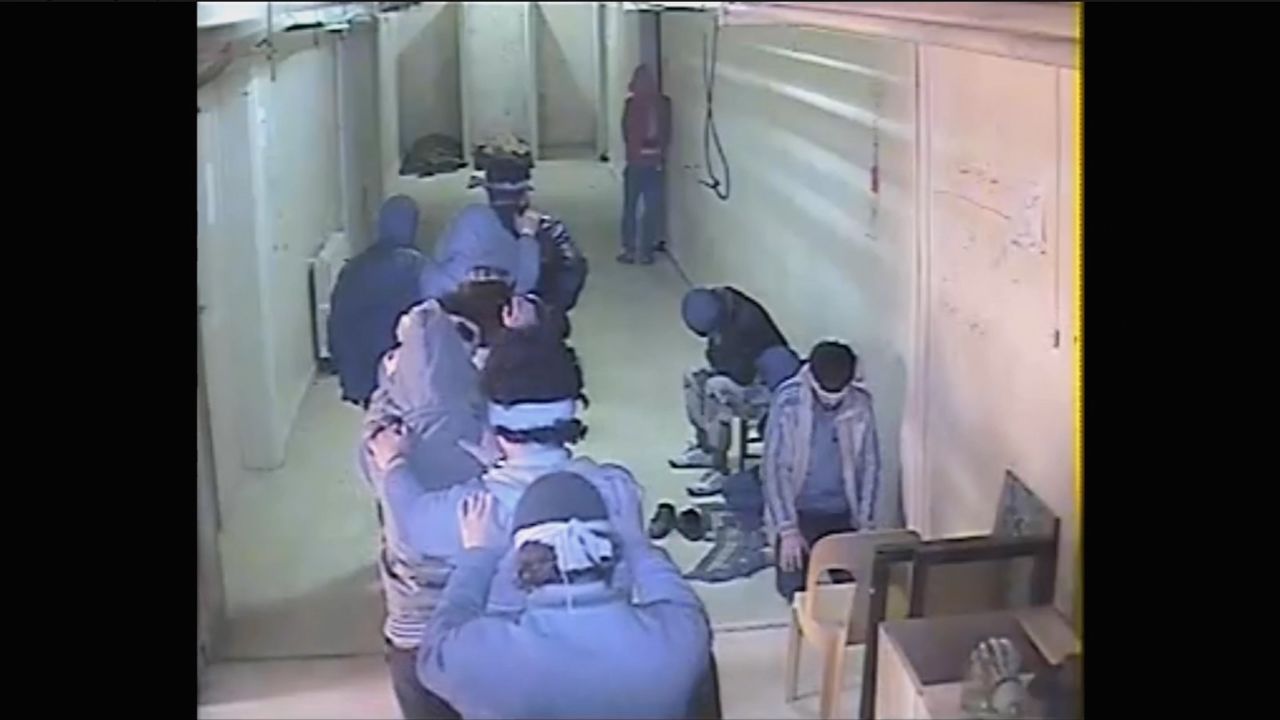
Among the lucky few who made it out were several Western hostages. Didier Francois, a French journalist, recounted his ordeal to CNN’s Christiane Amanpour soon after his release.
“We could hear the Syrian prisoners in the first places where we were detained,” he said. “In Aleppo hospital, for instance.”
“There were also some Syrian and Iraqi prisoners there – local people who were detained for whatever reason – because they smoked or because the girls were not wearing the proper veil or whatever. And they were beaten and tortured. And we could hear them behind the doors.”
Francois recounted being taken to use the toilet and finding prisoners lying in pools of their own blood.
“There were some rooms in which torture was taking place every night. And sometimes we were put in those rooms. And you could see the chains hanging or the ropes hanging or the iron bars.”

‘Clear evidence of abuse’
The testimony of people such as Francois, and the Syrians and Iraqis who also escaped death, have long been powerful tools to hold those responsible to account. Years on from the collapse of ISIS’ territorial peak, though, memories fade and the bar for court evidence becomes harder to meet.
Engels said that the security camera videos from Aleppo were “clear evidence of abuse that went on in the facility. And it also helps identify those perpetrators who were responsible for abuse,” he said. “We’re able to show the world today what Islamic State looked like behind the scenes.”
It is thanks in part to CIJA’s efforts that numerous perpetrators have been prosecuted around the world. As ISIS was collapsing in Syria and Iraq, Engels and his team of investigators swept through the group’s former offices and bagged up hard drives, papers – anything they believed might give a window into how ISIS was run.
CNN was with CIJA in 2017 in northern Iraq and in 2018 on the Turkey-Syria border for those fact-finding missions.
Its investigators take that evidence and turn it over to law enforcement agencies and prosecutors who – it is hoped – can either identify former ISIS members still roaming the streets, or charge those already in prison with more serious offenses.
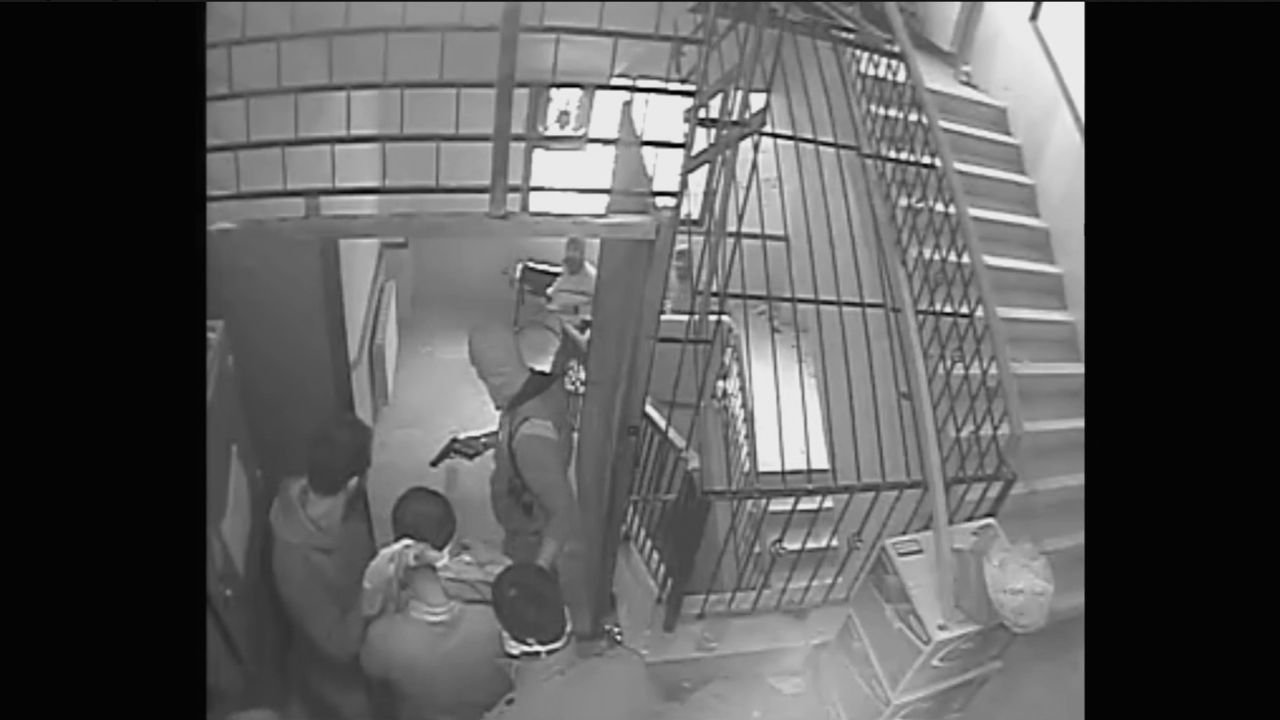
The Global Coalition to Defeat ISIS, which is made up of more than 80 countries and other members, still exists. At its most recent meeting, in Saudi Arabia in June, foreign ministers emphasized in a joint statement that “border security requires the preservation and sharing of battlefield evidence as appropriate with law enforcement.”
CIJA says it has aided prosecutions in 13 countries. It gets its funding on a project-by-project basis, from Western governments – including those of the United States, United Kingdom, Canada and Germany – the European Union, and others.
“It’s often the case that domestic law enforcement or prosecutorial authorities have enough evidence to prove that (suspects) were a member of a terrorist organization and can charge them and get a conviction for membership or material support to the organization,” Engels told CNN.
“But what we think is important is that wherever possible we’re able to prosecute them for the torture, for the kidnapping, for the murders.”
The footage from Aleppo has already been used to identify a suspect in France, CIJA told CNN. It says it has received hundreds of requests for evidence from law enforcement agencies around the world.
“Our law enforcement partners have not at all forgotten about the conflict,” Engels said. “These are individuals that have already proven that they are a threat. And we don’t want to give them the opportunity to decide to go down that path again.”
Found in a sleepy Dutch village
On a frosty Tuesday morning this past January, heavily armed police descended on a row house in Arkel, a Dutch village of just over 3,400 residents.
The 37-year-old man they took into custody was, prosecutors allege, a top security official in southern Damascus for ISIS, and before that in the former al Qaeda-affiliate Jabhat al-Nusra. He has been charged with two counts, being a member of a terrorist organization, and being a member of a terrorist organization with the aim to commit war crimes.
“He was not hiding. He was just living there openly,” Mirjam Blom, who is leading the case for the Netherlands Public Prosecution Service, told CNN in Rotterdam recently.
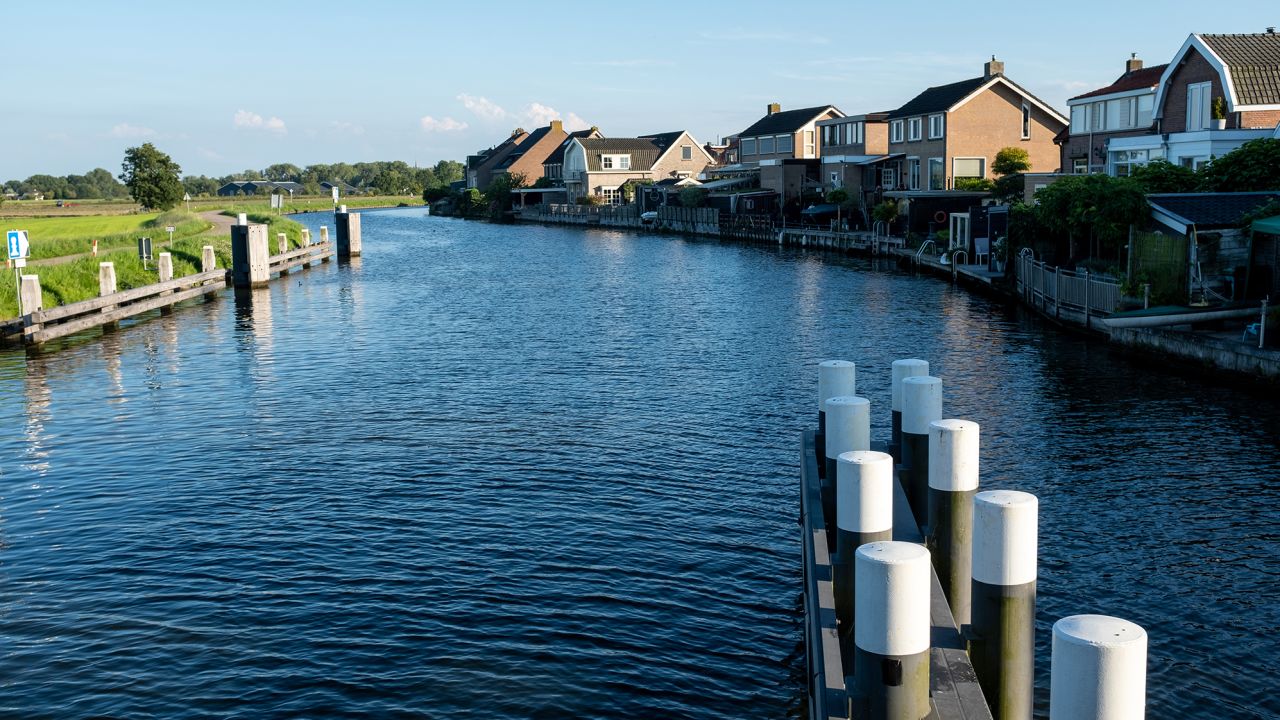
The suspect, a Syrian man referred to in public as Ayham al S., entered the Netherlands in 2019. The government granted asylum to him and his wife.
Syrian sources told CNN that he had jihadist links even before the Syrian civil war erupted in 2011, and was briefly jailed by the Syrian government.
He has denied the government’s accusations against him, but his lawyer declined to comment further to CNN.
The case of Ayham al S. is unrelated to the Aleppo footage, but it is a clear example of how alleged crimes committed years ago, and thousands of miles away, can catch up with a suspect living undetected in Europe.
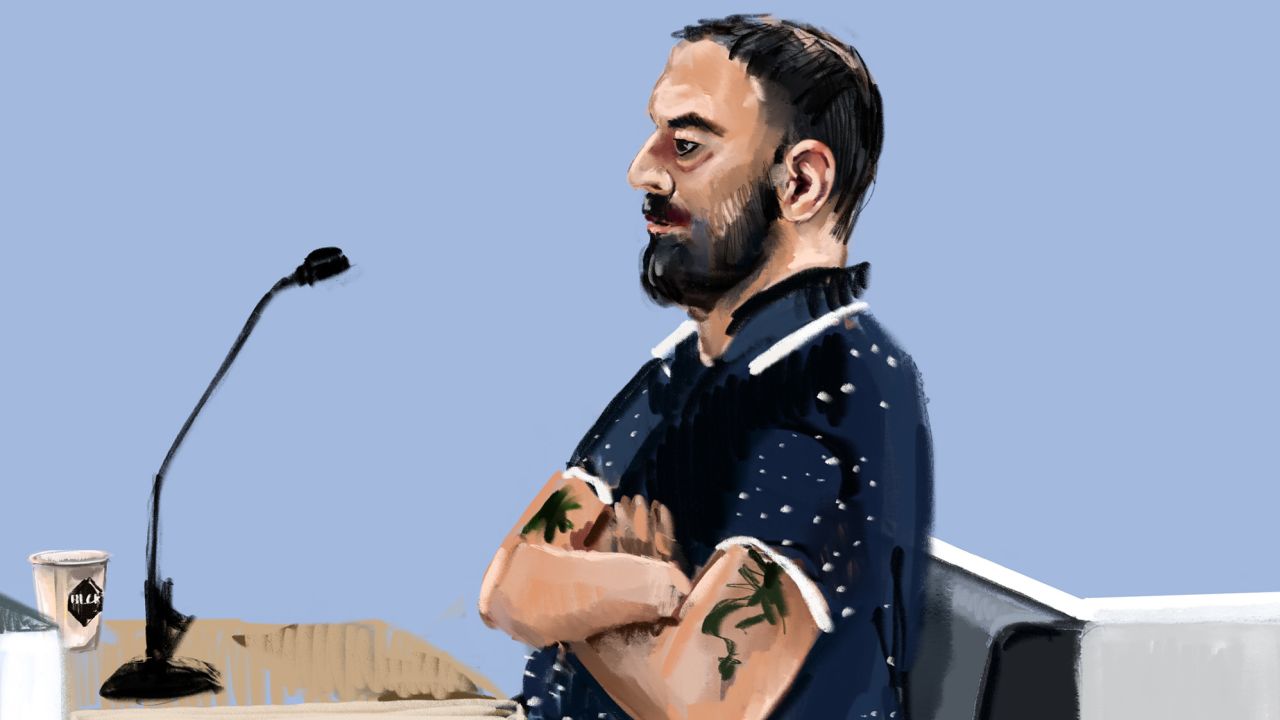
The information that led to his arrest started with dogged research and victim interviews by the Syrian Center for Media and Freedom of Expression (SCM).
Witnesses they spoke to allege that Ayham al S. was responsible for “a large number of serious violations including kidnapping, torture and killing.”
“Victims and other witnesses are very afraid,” Blom explained. “They are afraid of threats. Also when they live in Europe they are afraid (for) their relatives still residing in Syria or the region of Syria. So people are not always so willing to talk to the judicial authorities.”
By all accounts, Ayham al S. led a quiet life in Arkel. He had made significant efforts to learn Dutch, his neighbor told CNN. His arrest shook the sleepy hamlet. The residents who cycle its streets and peer through windows at the foreign media cameras are reluctant to rehash the months-old past.
‘Not a safe haven for war criminals’
The legal principle that allows the Dutch government to pursue Ayham al S. is known as universal jurisdiction. It allows national prosecutors to pursue a suspect present in their country for grave crimes against international law. (It can also let prosecutors charge a suspect if they or their victim is a citizen of the country where the accusations are leveled.)
“We are prosecuting crimes that fall under the jurisdiction of the ICC,” or the International Criminal Court, Blom said. “But the ICC has always been complementary to national jurisdictions.” The ICC only actually steps in, she said, when a national government fails to take on a case.
The Netherlands said in May that the “terrorist threat” had increased. The National Coordinator for Counterterrorism and Security said that there are “more and more indications that jihadist organisations are preparing to carry out terrorist attacks in Europe.”
The terror assessment said, however, that people suspected of participation in terrorist organizations overseas who had sought asylum or refuge were unlikely to pose a threat to the Netherlands. “They are trying to build a new life for themselves in the Netherlands and to conceal their past from the authorities as best as possible.”
Ayham al S. already faces life in prison, according to Blom, if convicted of being a member of a terrorist organization, and being a member of a terrorist organization with the aim of committing war crimes.
Under the Dutch system, prosecutors continue to investigate his case while he’s in detention –which could last years before a trial takes places – and could add more charges.
“To be able to investigate and prosecute those cases, it is a very, very important aspect in our mission not to be a safe haven for war criminals, to be a safe haven for people who have committed the most serious crimes there are,” said Blom.

